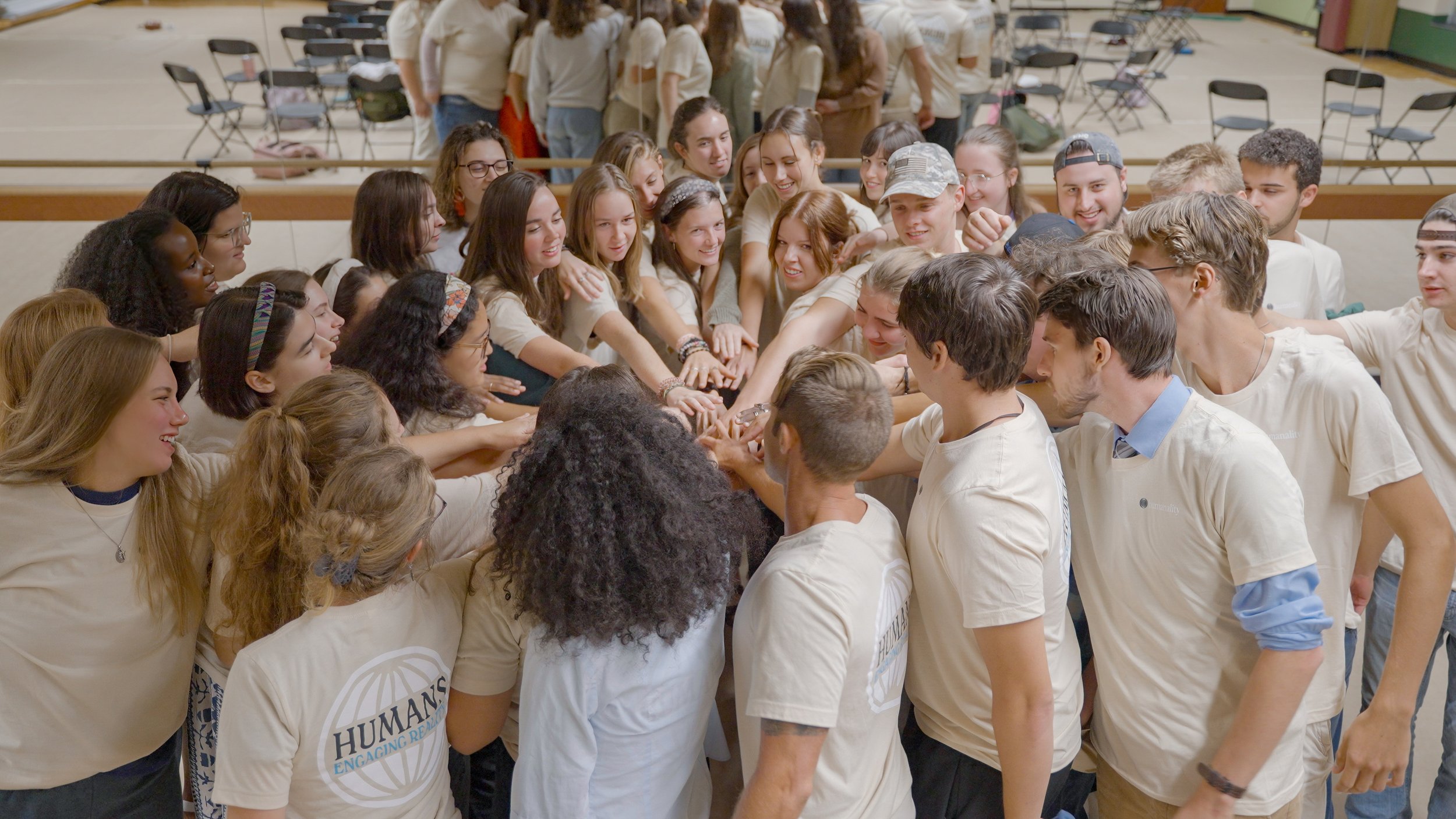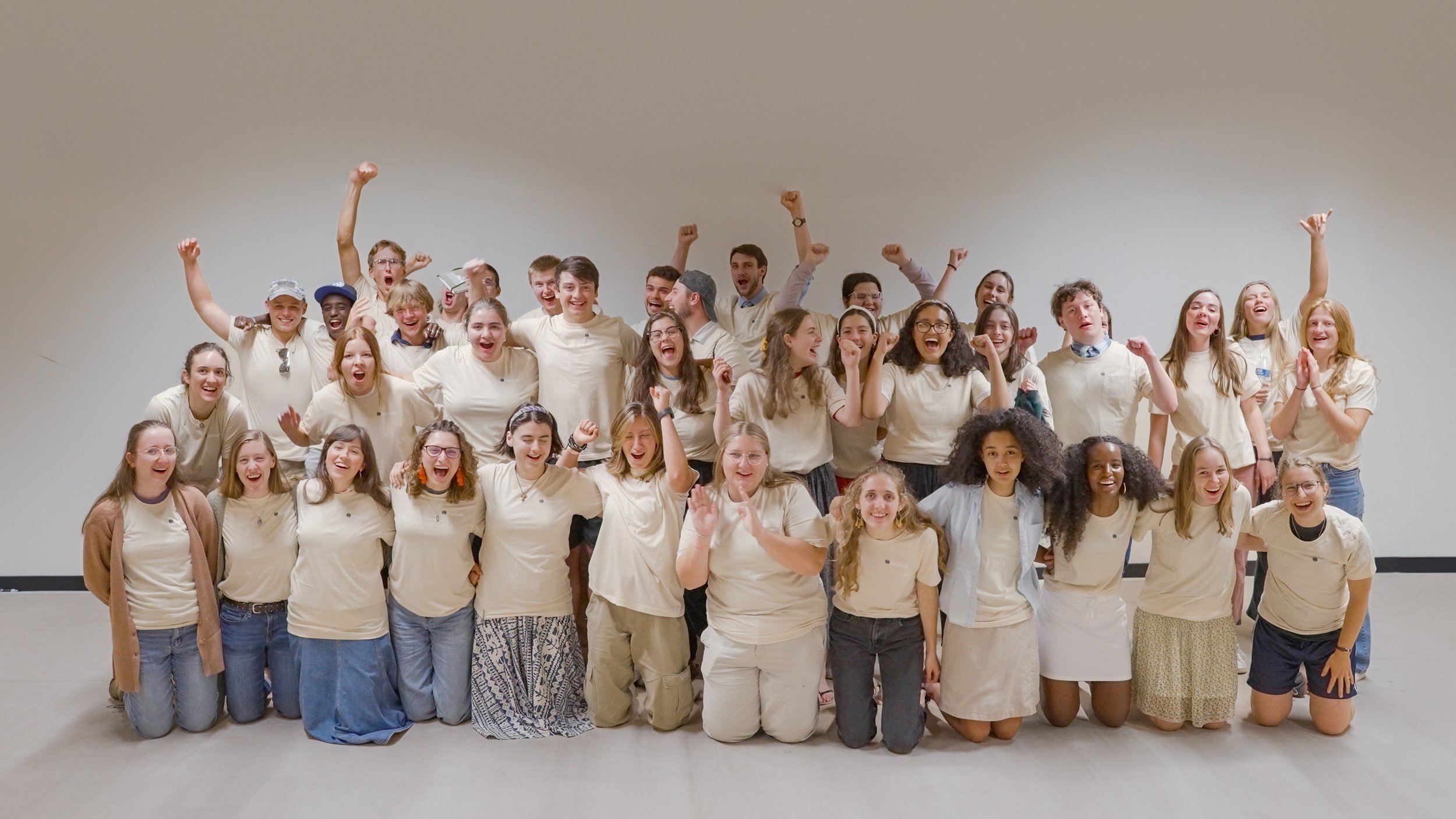Building a More Human Future
Let’s reclaim our humanity and engage reality together.
Help reclaim authentic human living, and tame the tech beast.
At Humanality, we're on a mission to recover authentic human living. We look our tech addictions square in the face and push back with real human connection, embodied life experiences, and the joy of unplugging. Join us in this transformative journey by donating today and be a part of a brighter future.
Your support enables us to empower individuals to thrive in the digital age while preserving the essence of human living.
The Story Behind Humanality
Our Goals for 2025
Join us in our mission to create a more mindful and connected world. Together, we can achieve these ambitious goals and build a brighter future.
Main Goal: Continue to launch Humanality clubs at college campuses nationwide
With your support, we aim to expand our reach by scaling to 20 colleges and universites empowering students to lead and inspire change. These clubs will be a hub for students to engage in meaningful discussions and activities, promoting balanced tech habits and holistic development.
Future Goals: Promoting Healthier Digital Habits and Mental Well-Being
1. Expand Humanality Presence at Colleges and Universities
2. Establish Family Humanality Chapters Nationwide
Create supportive communities across the country to foster healthy tech habits within families.
3. Launch High School Chapters Nationwide
Provide essential resources to help high schools foster more vibrant in-person communities.
Testimonials
See what students are saying about how Humanality has changed their lives.
What’s the science behind this mission?
Humanality isn't just another non-profit criticizing technology; it's founded on scientific research and aims to reshape how we interact with technology, promoting healthier relationships and authentic human connections. Here’s a look at the science behind our mission.
Case Studies
Case Study: The Anxious Generation
This pivotal study by Jonathan Haidt reveals a significant rise in anxiety and depression among adolescents, beginning around 2012. The increase correlates with the widespread adoption of smartphones and social media. Key findings highlight:
Trend Analysis: Sharp rise in anxiety and depression rates starting in the early 2010s.
Behavioral Indicators: Increased self-harm and suicide rates.
Global Perspective: Consistent trends across Anglosphere and European countries.
For more details, visit The Anxious Generation.
Case Study: Technology Addiction
Dr. Nicholas Kardaras' research on technology addiction highlights significant concerns related to excessive screen time and its impact on mental health. Key findings include:
Addiction Metrics: Approximately 8-10% of children are addicted to video games, a rate comparable to other addictions.
Behavioral Impacts: Studies have shown that children exposed to more than 3 hours of screen time per day exhibit higher rates of aggression and attention deficits.
Neuroscientific Insights: Excessive screen use can lead to changes in brain structure and function, particularly in areas related to decision-making and impulse control. Notably, MRI scans reveal that screen addiction can cause similar brain changes seen in drug addiction.
For more details, visit Technology Addiction.
Additional Resources:

Some Scary Stats
We are deeply committed to our mission because we believe in safeguarding the well-being of children and teenagers in today's digital age. The alarming rise in screen time and self-harm rates among young individuals calls for urgent action to promote healthier digital habits and mental well-being. Our mission is driven by the conviction that everyone deserves a safe and balanced relationship with technology, ensuring a brighter and healthier future for generations to come.
The average time 18-year-olds spend on entertainment-based screen content is 12 hours and 21 minutes per day (Nielsen Total Audience Report, August 2020).
Elementary-aged children now spend an average of 7.5 hours per day on entertainment technology (Kaiser Foundation Report, 2010).
There has been a fourfold increase in self-harm among 10-14-year-olds since 2010 (iGen, Jean M. Twenge).
More people visit pornographic sites each month than TikTok, OpenAI, Zoom, Netflix, or Amazon combined (McNichols, 2023).
According to a groundbreaking study conducted by Koepp et al. in 1998, video games increase dopamine in the brain as much as sex does (approximately 100 percent increase).
Brain imaging research also indicates a loss of integrity to the brain’s white matter in people with Internet Addiction Disorder (IAD) (Lin 2012, Yuan 2011, Hong 2013, and Weng 2013).
The human attention span has fallen to 8 seconds. According to Microsoft, a goldfish, by comparison, has an average attention span of nine seconds (2013).

Transform lives by supporting a Humanality club
When you support a Humanality club, you’re fueling a transformative mission centered on reclaiming authentic human living and harmonizing with technology. Here’s how each aspect of your support helps us achieve this mission:
1. Free Light Phone:
Providing a complimentary light phone helps members minimize distractions, improve study habits, and enable deeper, face-to-face connections.
2. Monthly Club Meetings:
Our regular gatherings not only create a sense of community and belonging but also include curated programming and curriculum development. This ensures members have the tools and resources to navigate digital overload and lead more fulfilling lives.
3. Small Group Accountability:
Members benefit from the encouragement and motivation of small groups, which help them stay committed to their personal and collective goals.
4. Phone-Free Outdoor Experiences:
Activities like hikes and campfire nights offer refreshing breaks from screen time, promoting mental well-being and physical health.
5. Phone-Free School-Wide Concerts:
Live music events in a tech-free environment provide joyful and memorable experiences, fostering genuine social interactions and community spirit.
6. Humanality Merchandise:
Exclusive merchandise helps members feel a sense of pride and belonging to a movement dedicated to positive change.
7. Speaker Events:
Inspirational talks from thought leaders equip members with valuable insights and strategies for living a balanced, tech-conscious life.
Your generous contribution helps individuals reclaim balance, build meaningful relationships, and lead healthier, more connected lives. Thank you for being a part of this impactful mission.
Other Ways to Support Humanality
Mail Check
Humanality
2343 Baldwin Creek Road
Lander, WY 82520
Please include your mailing address and email address.
Donor Advised Funds
Recommend Humanality to your financial institution.
Humanality
2343 Baldwin Creek Road
Lander, WY 82520
Federal Tax Identification Number:
92-1428482
Stocks
You can donate stock to Humanality by contacting our Executive Director.
Please email andrew@humanality.org or to receive instructions for transferring stock.
Please provide the following information when you reach out: name, mailing address, email, phone number, number of shares, type of stock, and transfer date.

Frequently Asked Questions
-
Our goal is to raise $250,000 to support the expansion of our Humanality college clubs program to 20 schools, develop a seminary formation Humanality program, establish family Humanality chapters nationwide, and provide Humanality digital detox kits.
-
You can donate online through our secure donation page or by mailing a check to:
Humanality
2343 Baldwin Creek Road
Lander, WY 82520
-
Your donation will directly support the creation of new Humanality programs, providing essential resources and support to students, families, and communities, helping them lead healthier, more connected lives.
-
Yes you can. Here is the address below:
Humanality2343 Baldwin Creek Road
Lander, WY 82520
Please include your mailing address and email address.
-
Yes, contact Andrew@humanality.org for any other types of donations.
-
Yes, donations to our nonprofit are tax-deductible to the extent allowed by law. We will provide you with a receipt for your donation, which you can use for tax purposes.
-
Absolutely! We welcome volunteers, advocates, and ambassadors. You can learn more about volunteer opportunities and other ways to get involved by contacting our Executive Director, Andrew Laubacher.






